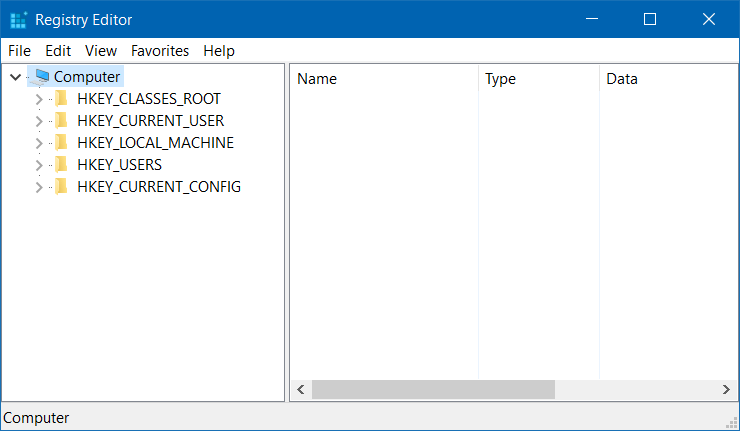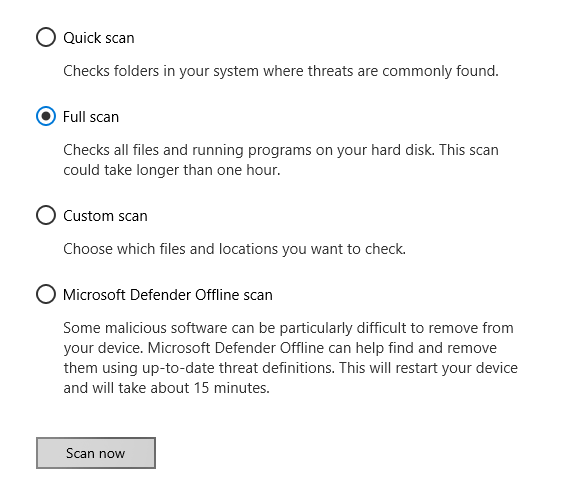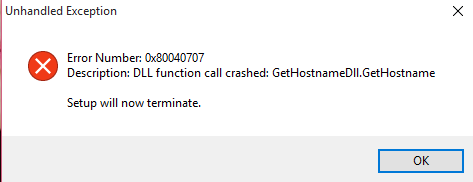- Download and install the software.
- It will scan your computer for problems.
- The tool will then fix the issues that were found.
You will occasionally see a Windows error message 0x80040707 and will probably find very little documentation on how to use it. This error is often encountered when running an installation or update procedure in Windows.
If you encounter this error message during an installation or upgrade process, the easiest workaround is to do one of the following.
This error results in the following message:
FAIL TO SET CONFIGURATION: (0x80040707)
If you receive this error message during installation or upgrade, the easiest workaround is:
- Change to the directory where the setup startup file is located (for example, Setup.exe).
- Right-click the installation file and select Run As.
- Clear the Protect computers and data from unauthorized actions check box and click OK.
Modify Registry
This error can occur if the path is missing or invalid in the registry.
This section, method, or task contains steps that explain the registry. However, serious problems can occur if you modify the registry incorrectly. Please follow these steps carefully. For added protection, save the registry before modifying it. Then you can restore the registry if you run into problems.
Check for invalid entries and correct them.

a. Click the Start button, type regedit.exe and press Enter.
b. Go to the following location: HKEY_LOCAL_MACHINE \ Software \ Microsoft \ Windows \ Current Version \ Explorer \ User-Shell
c. Make sure the keys contain (at least) the following values in the Name and Data columns:
• General office = “% PUBLIC% \ Desktop”
• Common Programs = “% ProgramData% \ Microsoft \ Windows \ Start Menu \ Programs”
• General start = “% ProgramData% \ Microsoft \ Windows \ Start Menu \ Programs \ Startup”
• General menu “Start” = “Menu% ProgramData% \ Microsoft \ Windows \ Start”
d. If the key displays an incorrect path, follow these steps to fix it:
- Right-click a registry key with an invalid path and select Modify.
- In the “Edit String” dialog box, enter a valid path in the “Value” field.
- restart your computer.
e. If the key is missing, follow these steps to create it:
- Right-click an empty area of the right window and choose New> String Value.
- Enter the name of the missing key, eg. B. General programs.
- Right-click the newly created registry key and select Modify.
- In the “Edit String” dialog box, enter a valid path in the “Value” field.
- restart your computer.
Updated: July 2025
We highly recommend that you use this tool for your error. Furthermore, this tool detects and removes common computer errors, protects you from loss of files, malware, and hardware failures, and optimizes your device for maximum performance. This software will help you fix your PC problems and prevent others from happening again:
- Step 1 : Install PC Repair & Optimizer Tool (Windows 11, 10, 8, 7, XP, Vista).
- Step 2 : Click Start Scan to find out what issues are causing PC problems.
- Step 3 : Click on Repair All to correct all issues.
Scan your computer for viruses

By default, Windows 10 always scans your PC for malware with the built-in Windows security app, also known as Windows Defender. However, you can scan manually.
- In Windows 10, open the Start menu, type Security, and click the Windows Security shortcut to open it. You can also go to Settings> Update & Security> Windows Security> Open Windows Security.
- Click Virus & Threat Protection to run a malware scan.
- Click “Quick Scan” to scan your system for malware. Windows Security will scan and give you the results. If malware is detected, it is offered to automatically remove it from your computer.
- If you need a second opinion – it’s always a good idea when you’re worried that you have malware and your main antivirus won’t find anything – you can also run a scan with another security app.
If your antivirus application detects malware but cannot remove it, run a scan in Safe Mode. You can also make sure your PC is free of malware by resetting Windows 10 to its default state.
RECOMMENATION: Click here for help with Windows errors.

